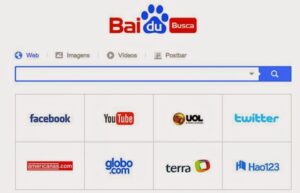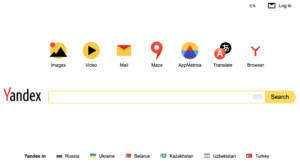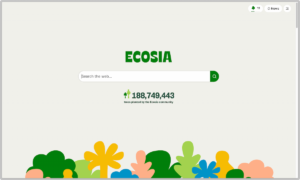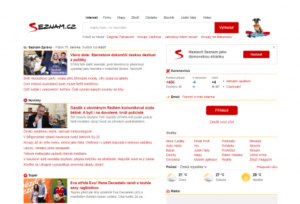
Do you get tired of using Google for all of your searches? Trying other search engines might be a good idea. Search engines have shaped the digital landscape in much the same way Yahoo unknowingly paved the way for Google. Here are the top 10 search engines of 2025, as well as emerging platforms that challenge Google’s dominance. Your needs might be better served by a search engine than you think. And for those interested in diving deeper, don’t forget to explore the top 50 search engines to find even more options that meet your preferences!
The Importance of Search Engines in 2025
Search engines are not just tools for finding information—they are central to the modern internet experience. They help users discover websites, blogs, articles, products, and services, shaping the way businesses interact with their target audience. With billions of searches conducted every day, understanding the top search engines is crucial for SEO professionals, marketers, and anyone aiming to enhance their online presence.
Search engines also play a pivotal role in delivering personalized experiences. They use algorithms and artificial intelligence to tailor results based on location, preferences, and past behavior. This makes staying updated with the best search engines of 2025 more important than ever, particularly for optimizing content for these platforms.
Top 10 Search Engines Worldwide (Updated List for 2025)
1. Google

As the undisputed leader in the search engine market, Google continues to dominate the digital landscape. With a market share exceeding 90%, Google is undoubtedly the best search engine globally. It provides highly relevant search results, advanced AI algorithms, and powerful tools like Google Images, Google Maps, and Google News. In 2025, Google continues to innovate with features such as voice search, machine learning-powered results, and personalized search options.
Google’s extensive suite of services, including Gmail, YouTube, and Google Drive, further enhances its ecosystem, making it an indispensable part of everyday internet use.
2. Bing

Microsoft’s Bing remains a strong competitor to Google, holding the second spot in terms of global market share. Known for its clean interface and high-quality results, Bing powers Yahoo searches as well. In recent years, Bing has focused on integrating AI technologies and offering features like visual search and rewards programs.
For businesses, Bing offers significant opportunities for SEO and paid search advertising through Microsoft Advertising. Its growing user base and collaboration with Microsoft’s products make it an important player on the search engine list.
3. Yahoo!

While Yahoo! has lost some ground in recent years, it still ranks as one of the 50 best search engines globally. Yahoo! is powered by Bing, but it continues to serve a loyal user base, particularly in Japan and parts of Asia. Yahoo’s unique features include its email service, news, and finance section, making it a go-to platform for users who prefer a personalized search experience.
Yahoo’s emphasis on content integration and diverse offerings keeps it relevant in 2025, particularly for users seeking news and financial information.
4. Baidu

Dominating the Chinese market, Baidu is a powerful search engine that caters to the world’s largest online population. Baidu offers a range of services, including its search engine, Baidu Maps, and Baidu Baike (the Chinese version of Wikipedia). It also plays a significant role in artificial intelligence, with advanced capabilities for natural language processing and autonomous driving.
For businesses targeting China, Baidu is essential. Its localized approach and understanding of Chinese culture and language make it a top search engine for users in Asia.
5. DuckDuckGo

With increasing concerns over privacy and data security, DuckDuckGo has become a popular alternative to traditional search engines. This privacy-focused search engine does not track user data or search history, appealing to privacy-conscious users worldwide. In 2025, DuckDuckGo continues to gain traction, offering users a straightforward and secure way to search the internet.
DuckDuckGo’s commitment to privacy and its growing adoption by privacy-conscious individuals make it an important addition to the search engine list for those who prioritize confidentiality.
6. Yandex

Russia’s leading search engine, Yandex, is also gaining ground in countries like Turkey, Belarus, and parts of Europe. Yandex offers a wide range of services, including Yandex Maps, Yandex Translate, and Yandex Music, providing a comprehensive ecosystem similar to Google’s. Yandex is known for its ability to process Russian and other regional languages effectively, which makes it a key player in Eastern Europe and Central Asia.
For businesses with a presence in Russia or Eastern Europe, optimizing for Yandex can be highly beneficial.
7. Ecosia

Ecosia is a unique search engine that uses its profits to plant trees. By simply using Ecosia to search the web, users contribute to the environmental cause. In 2025, Ecosia continues to grow in popularity, especially among eco-conscious individuals and businesses. It has also integrated with Microsoft Bing to deliver search results, making it a viable option for users seeking a green alternative to traditional search engines.
Ecosia’s focus on sustainability and its rapidly growing user base make it a notable mention in the 50 best search engines.
8. Qwant

A European-based search engine, Qwant places a strong emphasis on user privacy and neutrality. It does not track users or filter search results, making it a popular choice for those who want unbiased and anonymous search results. In 2025, Qwant’s focus on privacy and its growing adoption in France and other parts of Europe make it a notable competitor to larger search engines like Google.
Qwant’s commitment to privacy and neutrality positions it as a strong contender in the search engine space.
9. Naver

As South Korea’s leading search engine, Naver serves a critical role in the country’s digital landscape. In addition to traditional search capabilities, Naver offers a range of services, including blogs, news, and shopping. Naver’s search results are tailored to South Korean users, making it the go-to platform for local searches in the region.
For businesses targeting South Korean consumers, Naver is an essential search engine to consider for SEO and online visibility.
10. Seznam

Seznam is the most popular search engine in the Czech Republic. Although it has a relatively smaller user base compared to global giants like Google, Seznam’s dominance in its home market makes it a crucial search engine for local SEO in the region. Seznam also offers a range of services, including email, maps, and news.
Seznam’s localized search results and strong presence in the Czech Republic make it an important platform for businesses operating in the region.
Criteria for Ranking the Top Search Engines
When ranking the top search engines, several key criteria are considered to determine their effectiveness, relevance, and user experience. These factors help us understand why certain platforms dominate the search engine landscape while others struggle to make a significant impact.
1. Market Share
Market share is perhaps the most important criterion. A search engine’s popularity is typically measured by how many users rely on it for their daily searches. Google, with its over 90% market share, leads the pack, followed by Bing and Yahoo, which command a smaller but still significant portion of the market. A high market share means more search queries, which translates to greater visibility for businesses and content creators optimizing for that engine.
2. Relevance and Accuracy of Search Results
The quality and accuracy of search results are paramount for user satisfaction. Search engines that provide the most relevant, up-to-date, and precise information are more likely to be preferred by users. Google, for instance, uses complex algorithms and AI to refine its results, ensuring that they meet the user’s intent.
3. Innovative Features
Search engines that incorporate unique features such as voice search, image search, and enhanced privacy protections tend to stand out. DuckDuckGo, for example, emphasizes user privacy, while Bing has incorporated AI into its search results, making it more competitive.
4. User Experience and Speed
A smooth, fast, and intuitive user experience is critical. A search engine that delivers fast results and a simple interface, without overwhelming users, is more likely to retain a loyal following.
5. Security and Privacy
In an age where privacy is a growing concern, search engines that prioritize user data protection and offer secure browsing options are becoming increasingly popular.







